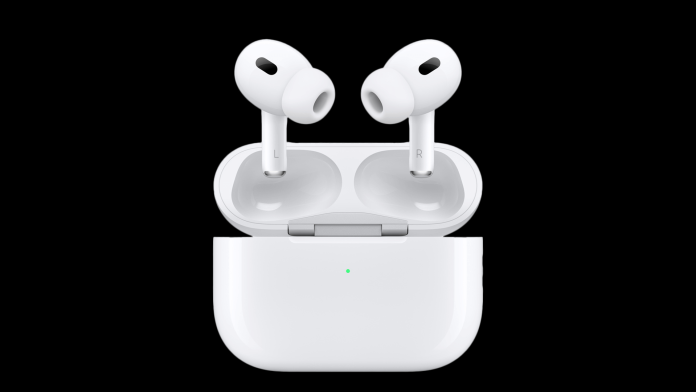With all the latest technology developments and new functionalities, the online casino landscape has become a fierce battleground. Online casinos are constantly trying to attract more players, and their primary weapon is free spins.
Free spins capture the attention of new and loyal players to keep them engaged. Thanks to their perks, gamblers also claim they feel more valued by online casinos. However, staying ahead of the competition is challenging, as most casinos implement these bonuses.
Because of this, we decided to guide you through the world of free spins to explain their function and different types. On top of that, we’ll also share an effective strategy that will help you maximise your wins. So, before you make your first deposit, let’s get into more detail!
Understanding Free Spins
Free spins act as golden tickets in the world of online casinos. They allow you to spin the reels on slot machines without spending any of your stake budget. More precisely, free spins come with a predetermined value, which online casinos usually set at the minimum bet for your selected slot. If you manage to earn some wins, they are instantly deposited into your casino bonus balance.
What’s more, complimentary spins (as they’re also known) allow you to experience the thrilling and exciting world of slots and potentially walk away with real money without spending any. However, free spins aren’t entirely free. They have some requirements that you need to keep in mind.
Conditions usually include restrictions on which slot games you can play with the free spins, betting requirements that you need to fulfil before you withdraw any winnings, and expiry dates that limit the timeframe within which you can use the free spins.
Having this in mind, you need to familiarise yourself with the wagering requirements of the free spins, the game limitations, and limited time frames so that you can make the most of these incredible slot bonuses. Before we move on to their terms and conditions, let’s sum up everything about what free spins are:
- Free spins are generous online casino bonuses
- They let you spin the reels without using your own cash
- They are usually linked to particular slot games
- Free spins increase your chances of winning jackpots or any other bonus funds
Terms and Conditions: What Free Spin Requirements You Need to Meet
Above, we mentioned that free spins come with some limitations and requirements that you need to keep an eye on. However, in order to understand the free spins completely, you need to learn more about the conditions that you’ll run into. So, let’s dive into more detail!
Betting Requirements
The first requirement we’ll discuss is the wagering condition. Although you can get free spins and earn some incredible prizes with them, there are some requirements that you first need to fulfil. Simply said, you must wager a certain amount before you withdraw any of the free spin wins.
Picture it like this. If you have won $50 during the free spins round and the casino set a 20x betting requirement, you will need to place $1,000 in bets before you cash them out.
Maximum Cashout Limit
Aside from the wagering requirements, many online casinos set a cashout limit. This means that even if you win some huge prizes, you might not be able to get it all. We recommend going through the terms and conditions of the casino, learning about the requirements, and developing a strategy before using any free spins bonuses.
Free Spin Game Limitations
Unfortunately, your usage of free spins can hit a wall. In other words, not all games are eligible to use your free spins, as online casinos restrict these bonuses to specific games. As a result, these limitations impact your experience, as well as the overall value of the slot’s RTP and volatility.
Expiration Dates
One of the most significant drawbacks for players is the expiration date of the free spins. Yes, free spins don’t last forever, and unfortunately, online casinos do this so they don’t stay way too long in your account.
That’s why you should carefully search for the time frame within which your free spins are available and plan your gameplay accordingly. Because of this, you will have enough time to meet any of the implemented requirements and maximise your chances of transforming the free spins into actual wins.
How to Receive Free Spins?
Earning big wins is almost every player’s goal, and free spins indeed help you achieve this. But in order to get them, you need to know how you can claim free spins. Don’t worry; we’ve got you covered! We decided to come up with a detailed guide that will help you understand how the process goes, so let’s begin.
Create an Online Casino Account
If you’re a newbie in the gambling landscape, the first step is to create an account. While this process can slightly differ from casino to casino, the main idea is the same.
All you have to do is provide your personal data, such as name, surname, and age. Once you do this, it’s time for you to select your username and password for the account. One helpful tip: make sure that you choose a reputable online casino that has a credible license so that you can enjoy fair game and highly secure transactions.
After you create the account, it is time to go on a hunt for promotions! To do this, you need to head over to the online casino’s promotion or deals page/section. In this part, you’ll find all of their exciting and available offers, such as free spins.
However, as there might be more offerings, browse carefully and select the one that suits your needs and preferences the most. Click for the latest free spins on this link!
Read Through the Terms and Conditions
We’ve already said this, but we’ll say it once again – before claiming any free spin offer, check the terms and conditions of the casino. You should mainly focus on details like betting requirements, expiry dates, available free spin slots, and maximum cashout limitations.
If you get a clear understanding of these terms, you will be able to make informed decisions and get the most out of the free spins.
Claim Your Free Spins
If the terms and conditions align with your goals and expectations, feel free to claim your bonus prize. Search for a button that says claim, opt-in, get free spins, or anything similar, click on it, and that’s it. You can now enjoy spinning the reels and win big with the assistance of the free spins.
Enjoy Playing
After you finish with the abovementioned steps, it’s game time. You’ll receive free spins on your online casino account and immediately start playing the eligible slot games. Enjoy spinning the lucrative reels without spending a dime.
Maximise Your Winnings
Free spins are a great way to maximise your slot winnings without spending your own cash. Despite what we’ve discussed so far, let’s provide you with some tips that will maximise your chances of earning bigger wins:
- Pick games with higher RTP: Slots with higher RTP provide wins more often than those with a lower one.
- Predetermine your budget: It’s crucial to set a budget limit and stick to it. Even if you don’t earn anything, try not to chase your losses.
- Use multipliers: Some slot games include multipliers in their gameplay. They can significantly enhance your win as they usually contribute to the jackpots.
- Try different game variations: Experimenting with different game variations will help you find the style and features that fulfil your preferences the most.
- Stay informed: Always pay attention to the latest free spin promotions and deals, as you will be able to seize opportunities for even bigger wins.
Conclusion
Free spins contribute to a more exciting experience and more lucrative wins. When using them you’re not putting any of your money upfront and still earn well. However, there are some things you need to be aware of.
Online casinos set different requirements for using free spins, such as cashout limitations, timeframes, wagering requirements, and a narrower range of available free spin slots. Luckily, by implementing our tips and reading the terms and conditions, you should maximise the free spin’s reward potential!

















